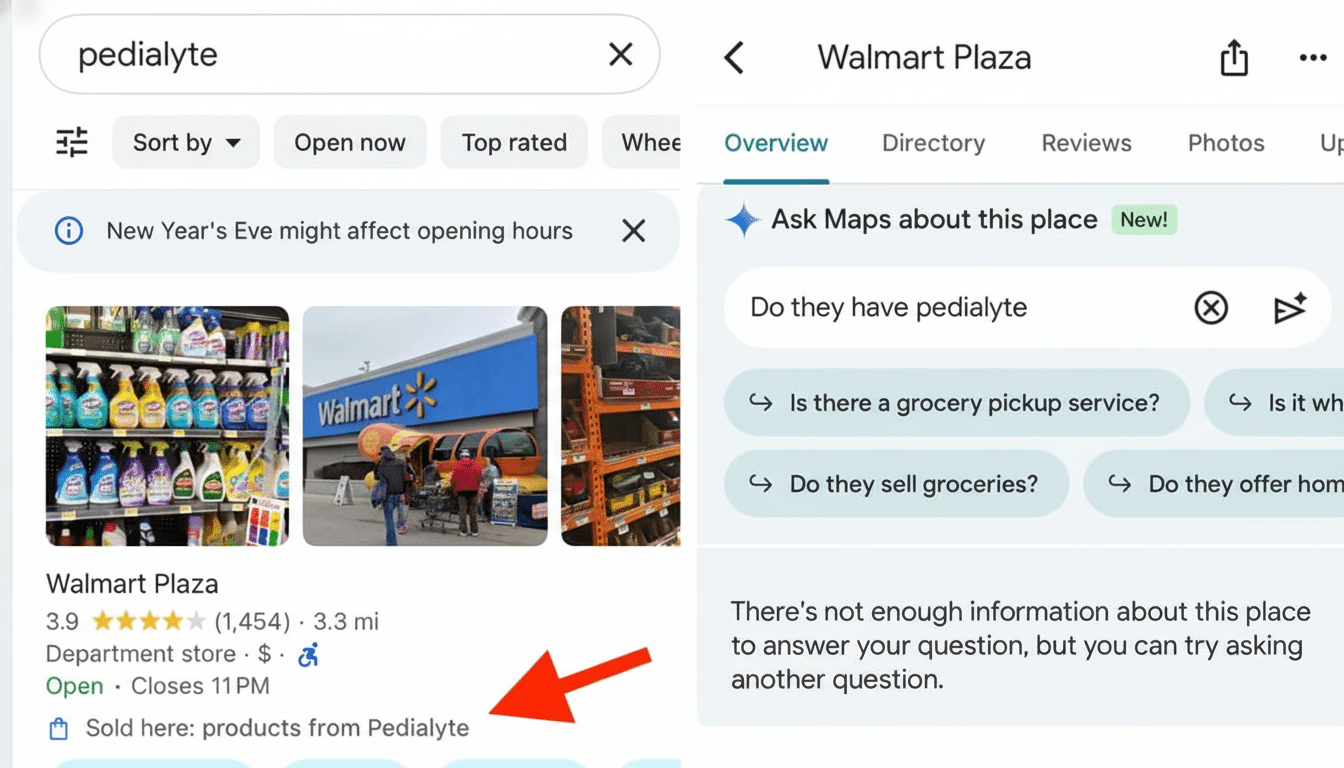Google Maps is quietly testing out a conversational approach on finding places, capturing the vibe of chit-chatting via the Gemini app. One such feature in development, tentatively named Ask Maps, is represented by a chip on the app’s home screen that opens a bottom sheet where you can ask open-ended questions and receive personalized recommendations without having to concoct exact search terms.
What the Ask Maps chip does in Google Maps beta
In a beta version of Google Maps (version 25.41.03.815390258), testers saw an Ask Maps chip underneath the main search bar.

Tap it and a bottom panel slides up with recommended prompts in a, um, suitably elastic gray area, along with a text field. Expand the panel further and you’ll see an interface that is eerily reminiscent of Gemini’s chat-based format, top-heavy with its carousel of ideas for “restaurants that serve cocktails & small bites” or “cool things to do this weekend in my area,” along with a microphone icon that invites voice input.
Ask Maps, importantly, is geared toward natural language. Rather than searching for “sushi downtown open late,” you could say, “what’s a late-night sushi spot near me with counter seating and great sake?” It then serves back relevant places, surfaces details in-line and can overlay results directly on the map.
Why a Gemini-Style conversational UI matters in Maps
Maps already does a pretty good job answering factual questions, but most local discovery is messy and contextual. A conversational UI allows you to convey your intent — atmosphere, price point, dietary restrictions, mood — without toggling filters. It also prepares the ground for multi-turn refinement, where you can follow up with “make it kid-friendly” or “walking distance from the theater” and preserve your context.
Under the hood, this approach likely combines large language models with Google’s Knowledge Graph and Places data. Google has said Maps goes to more than a billion monthly users and hundreds of millions of places, gathering tens of millions of updates from the community and partners each day. Married to that corpus is a conversational layer, and this was an obvious next step after Google had begun rolling out Gemini across search and productivity apps.
The Gemini borrowings aren’t just skin deep when it comes to design cues. A uniform GUI across the company’s apps would teach people to expect that same “ask me anything” kind of behavior when booking a trip, researching an area or choosing food. When done well, it’s the bridge between rigid map results and flexible, real-world questions.
Early quirks and caveats about quality and accuracy
Like a lot of features found in APK teardowns, this isn’t as finished. Some of our testers have seen multiple identical answers appear for the same prompt, and sometimes there’s a mismatch between what places are shown on the map versus what information is aggregated in that bottom sheet. For example, a question on the highest mountain in Japan correctly identified Mount Fuji but listed it twice.
These stumbles illustrate the difficulty of anchoring conversational AI in local data. LLMs are great at language, but maps require accuracy, current hours and correct attributes. Expect Google to rely on authoritative signals — owner-verified information, trustworthy reviewer profiles, structured menus, and on-device or server-side guardrails — to minimize the number of duplicates and hallucinations. Iteration is normal here: We’ve had iterations similar to this polish process with features such as Immersive View and eco-friendly routing.

How Ask Maps could shape local discovery for users
For users, Ask Maps could shorten the gap between a thought and a shortlist. Rather than rolling filters or jumping to the web, you can ask for “a nice date spot with small plates and live jazz and good cocktails” before whittling down by neighborhood or transit time in that same thread. That’s particularly helpful with last-minute plans or when visiting unfamiliar cities.
For businesses, that means the stakes are higher for structured data and authenticity. Those attributes in Google Business Profile — such as “serves cocktails,” “outdoor seating,” “live music,” “vegetarian options” and price range — become more vital if AI is matching natural-language intent to those fields. High-quality photographs, menus that are up to date and continued choices in categories will assist. And so will clear, specific reviews from actual customers that you can source as evidence in conversational answers.
Local SEOs need to prepare for a world focused on intent-based, long-tail queries and hyperlocal positioning.
That includes auditing profiles for full attributes, evidence-based tracking on which phrases customers are actually using and things that make clear they consider an item’s standout qualities. In other words, optimize for the way people talk — not what they type.
When you might see Ask Maps appear on your device
The Ask Maps chip is showing up in a new beta, discovered in an independent APK analysis and could be gated by a server-side flag.
Like many Google tests, users might see it at different times and in different places — or not at all. There’s no public timeline, and features seen in testing often take on a different form before reaching wide release.
Still, the direction is clear. Google is now bringing Maps to the conversational front end using those same AI principles that underpin Gemini. Should the company smooth over the early kinks — deduping answers, tightening grounding, preserving transparency — asking Maps could start to feel less like search and more like a helpful character-aware guide.

